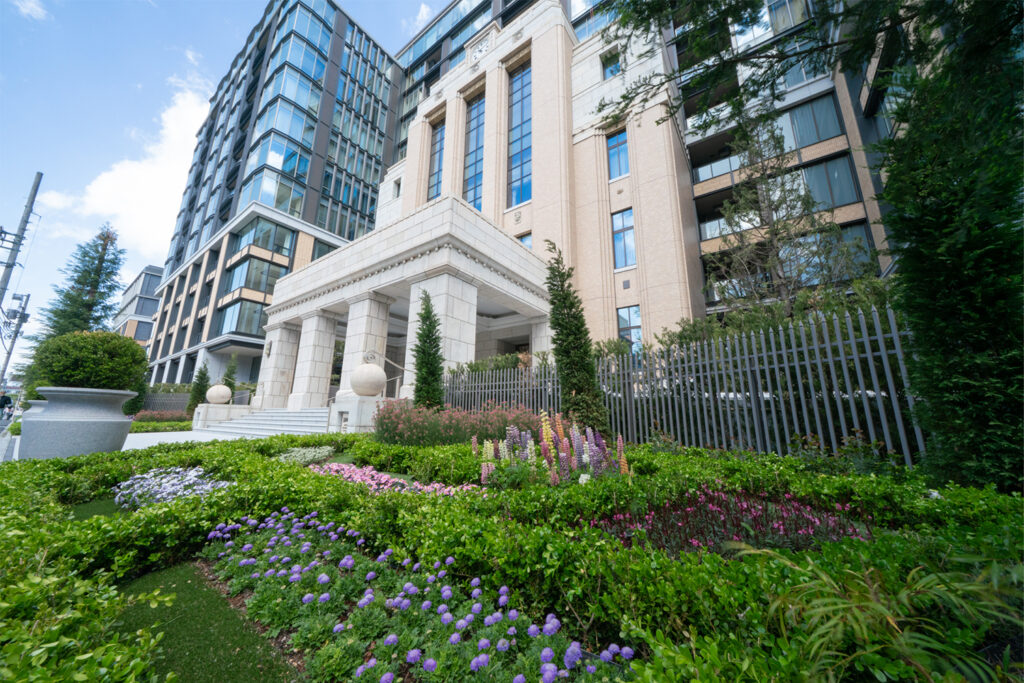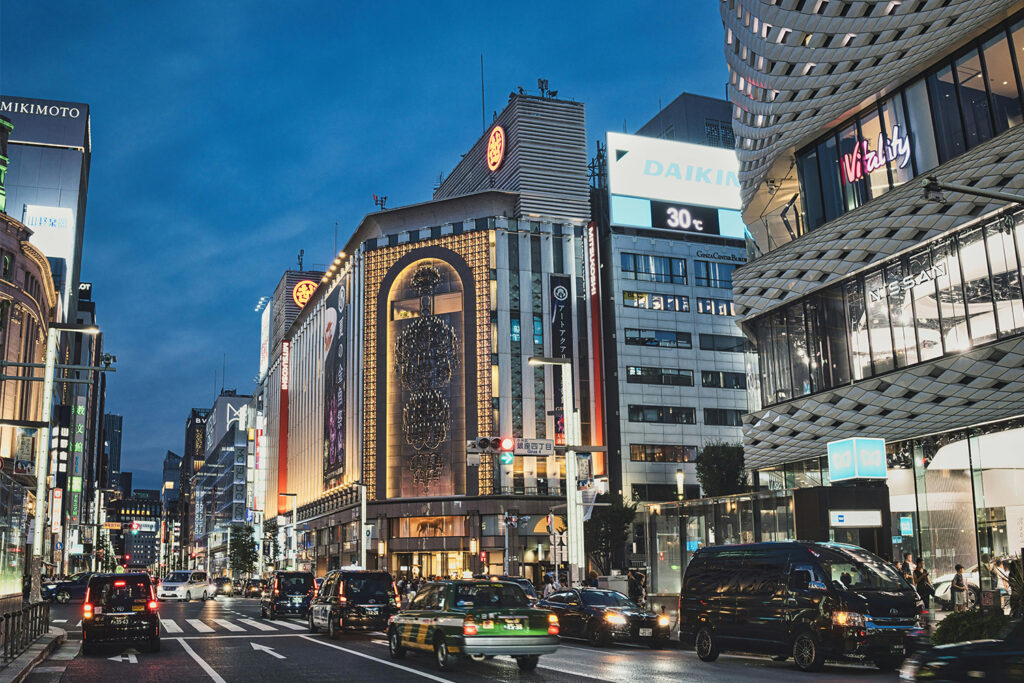
East Asia is home to some of the world’s most robust and fastest-growing economies. This presents many potentially lucrative investment opportunities across both residential and commercial property sectors. However, not all countries and local property markets offer equal ROI opportunities, and more importantly, not all of them are equally safe in terms of investment risk.
There are several important factors to consider before deciding on the property you want to put your money into. In this article, we’ll break these down, country by country, highlighting why Japan reveals itself as potentially the safest place to invest in the entire region.
Top Asian Property Markets When Considering Real Estate Investing in Japan
With an ever-evolving landscape of changing industry regulations, infrastructure developments, and wider geopolitical considerations to take into account, it can be a daunting task to pick a real estate investment location — something that’s even harder for more risk-averse investors.
Despite this, there are some clear contenders when it comes to the most promising investment hotspots in Asia. As such, we’ve rounded up the most popular countries in the region for real estate investment as part of our East Asian real estate market overview to shed some light on the situation.
Japan
Despite subdued economic growth, the real estate market in Japan continues to perform well. According to the Japanese Ministry of Land, Infrastructure, Transport, and Tourism, the residential property price index rose by 2.4% YoY in November 2018. Also, condominium prices rose by 3.7%, detached house prices increased by 0.9% and residential land prices rose by 0.2%. At the same time, average condominium unit prices fell only slightly by 0.3% in the Tokyo Metropolitan Area.
This comes as research from the Global Property Guide highlights that gross rental yields earned on residential property in Tokyo’s central districts range from 3.4% to 5.4%.
- Despite a slowing economy, Japan’s real estate market is projected to remain healthy going forward
- Major cities like Tokyo appeal to net migration, with younger generations likely to relocate for employment opportunities
- Lack of legal restrictions surrounding foreign ownership of property compared to other Asian regions continue to attract outside investment
- The property market remains stable, attracting risk-averse investors looking for good ROI
Singapore

The history of the Singaporean real estate market is one of the most extraordinary in Asia. Very few countries can claim to have achieved as much as Singapore has done over a recent 50 year period: transforming from a public market to private and then global; evolving from brick-and-mortar to a capital market and finally achieving the status of a modern world-class metropolis.
Nowadays, land and property prices in Singapore are through the roof, yet it still manages to attract thousands of wealthy individuals from Asia and around the world. In the 3rd quarter of 2019, house prices in Singapore grew by 2.1% YoY followed by a 2.7% YoY increase in December 2019.
According to Goldstein Research, the Singapore property market will grow at a compounded annual growth rate of 7.3% during the period 2016–2024, potentially reaching a total worth of $124.6 Billion by the end of 2024.
Key takeaways:
- Restrictive market regulations offer a higher level of safety for investors (only 15-20% of the housing stock is private)
- Retains one of the world’s highest rates of homeownership (largely attributed to its public-housing program)
- Reduced supply of housing stock due to government regulations offers a cap on market volume
- Steady interest from wealthy buyers in Mainland China, Malaysia, and Indonesia
- A booming luxury property market that offers lucrative opportunities for high-value investors
Hong Kong

For years, Hong Kong has enjoyed a similar reputation to Singapore. Both places have been widely considered the hottest property markets in Asia. Since 2009, Hong Kong’s residential property prices have skyrocketed by 242%, including spectacular growth of 28.5% in 2009, 21% in 2010 and 25.7% in 2012. However, certain factors indicate that this trend may not continue forever.
According to the Rating and Valuation Department of Hong Kong’s government, the residential property price index rose by just 1.62% during 2018, sharply down from the previous year’s 14.74%. And when this figure is adjusted for the inflation index, residential property prices actually declined by 0.92% YoY in 2018.
Many believe this can be largely attributed to government cooling measures such as rising interest rates as well as the wider economy’s declining growth rates, significantly impacting property demand in Hong Kong.
Key takeaways:
- Despite a recent economic downturn, the number of development projects continues to rise with completions increasing by 18% to 20,968 in 2018
- Supply of land and development regulations are strictly enforced by the government
- Hong Kong’s property market is rated as the world’s most unaffordable by the 15th Annual Demographia International Housing Affordability Survey: 2019
- Recent events suggest that Hong Kong has an uncertain socio-political and economic future, making property investment here relatively risky
Mainland China

China’s economy relies heavily on its real estate market, which has grown immensely in the past years and continues to be one of the fastest-growing property markets in the world. The problem for foreign investors is that it’s also one of the most regulated real estate markets globally, with the government having exclusive rights to land ownership in China.
Main obstacles for foreign investors include:
- A 70-year term land lease is the only way to obtain private ownership of land
- Foreigners are only permitted to buy properties after having worked or studied in China for a minimum of 1 year
- Commercial or industrial property may only be purchased after a company has been incorporated in China
- Foreigners are liable to pay extra taxes and fees on property ownership
However, due to a slowing economy and the recent real estate bubble, the Chinese government has been taking steps to open the market up to foreign investors to counterbalance these trends. This includes the relaxation of foreign investor restrictions on property sales. Also, authorities are being less diligent when it comes to scrutinising the number and purpose of properties purchased by foreign individuals and businesses.
Key takeaways:
- The Chinese government has exclusive rights to land ownership throughout the nation, with options to lease the land for investment purposes
- Shanghai, Beijing, and Shenzhen have recently seen significant increases in residential house prices
- New regulations have been introduced by the government to cool down the property market, including higher 10% down payments for bigger homes and second properties
South Korea

The South Korean real estate market is well known for being hard to navigate for foreign investors. Some of the reasons behind this include significant government intervention and the unusual nature of the property market, which requires huge key money deposits as part of the Jeonse/Chonsei system.
In 2018, anti-speculative government intervention was introduced. The Bank of Korea raised the key interest rate from 1.5% to 1.75% and the Financial Services Commission also released a detailed set of mortgage regulations.
However, despite what some predicted, these measures seemed to influence the market in a positive way: unsold houses on the market have gone down, Seoul’s house price index increased by 6.2% YoY in December 2018 and the national housing purchase price index rose 1.1% country-wide.
Key takeaways:
- While the Jeonse/Chonsei system requires large deposits of up to 80% of the property’s market value, deposit money can potentially be covered with a low-interest domestic bank loan (although it is hard for foreigners to get one)
- In Seoul, a supply gap is driving up property prices resulting in many new development projects
- South Korean provinces suffer from an oversupply of property
- The government heavily influences house prices
- Property taxes have been hugely increased in so-called “overheated speculative zones” found throughout Soul’s upscale southern districts
Real Estate Investing in Japan: Why Is It the Safest?
A brief analysis of key real estate markets in Asia conveys how there is indeed a great deal of opportunity throughout the region, yet it also shows us that there is a great deal of risk too. This is especially the case for foreign investors or those who are not experienced when it comes to navigating local market regulations.
Despite this, Japan emerges as an all-round winner in terms of investment safety. This is partly due to its openness to foreign investment as well as the establishment of carefully planned terms and regulations to control market volatility and reduce short-term speculation by encouraging long-term investments, which were a reaction to the 1990 and 2008 financial crises. Furthermore, amid regional trade wars and geopolitical uncertainties in the region, Japan stands out as one of the safest places to invest in real estate in East Asia.
According to Hideaki Suzuki, director and head of research and consulting at Cushman & Wakefield Japan, the number of big, foreign investors flocking to Japan’s residential property market has risen by 50% from 2018, as global funds seek safe havens amid uncertainties.
Tokyo continues to attract the greatest volume of domestic and foreign investors. Not only is real estate investment in the capital safer than in other parts of Japan, or Asia in general, but it also offers good ROI opportunities. If you’re interested in tapping into this potential, feel free to browse our commercial property listings in Tokyo.
The current safety offered by the Japanese property market to investors can largely be attributed to the way the nation has approached past challenges and introduced new safety regulations and policies to ensure future stability in the real estate market.
Key Takeaway
Japan, being one of the biggest and most institutionalized real estate markets in the world, offers safe property investment opportunities with good ROI. This is a result of its openness to foreigner investors with no restrictions on property purchases; a stable and regulated market; many new development projects in the pipeline and high occupancy rates, especially in Tokyo.
Ultimately, it is one of the first countries you should consider if you’re looking for a place to allocate resources to property investment in Asia.
Sources:
- https://www.ceicdata.com/en/indicator/singapore/house-prices-growth
- https://www.goldsteinresearch.com/report/singapore-real-estate-property-market-size-analysis
- https://www.globalpropertyguide.com/Asia/Hong-Kong/Price-History
- https://www.rvd.gov.hk/en/
- http://www.demographia.com/dhi.pdf
- https://www.asiapropertyhq.com/china-real-estate-market/
- https://www.scmp.com/business/article/3035171/japanese-residential-property-emerges-safe-haven-amid-us-china-trade-war

Editor: Shirley Yan
Editor’s Note: Shirley is Sales Director for Housing Japan. She has sold billions of yen of real estate and arguably has the highest client satisfaction rating in the industry. Shirley writes a regular column for Housing Japan readers to help illustrate common challenges buyers and sellers have when trading Tokyo residential property.
What Next?
At Housing Japan, we specialise in buying, selling, and managing residential luxury real estate in central Tokyo. Whether you are a local resident or simply seeking a second home or temporary residence for business trips, we have you covered. Our one-stop service includes expert management services, so you can sit back and relax knowing that everything is taken care of. Whether you are looking for a luxurious living experience or an investment opportunity, we are here to help you every step of the way.
View properties for sale in central Tokyo here
Contact Us
Housing Japan
7F BPR Place Kamiyacho, 1-11-9 Azabudai, Minato-ku, Tokyo, Japan 106-0041











